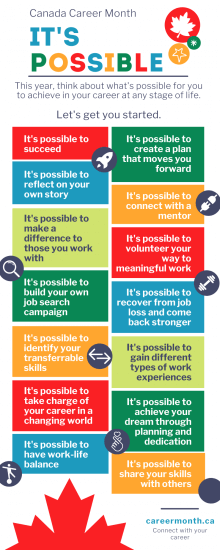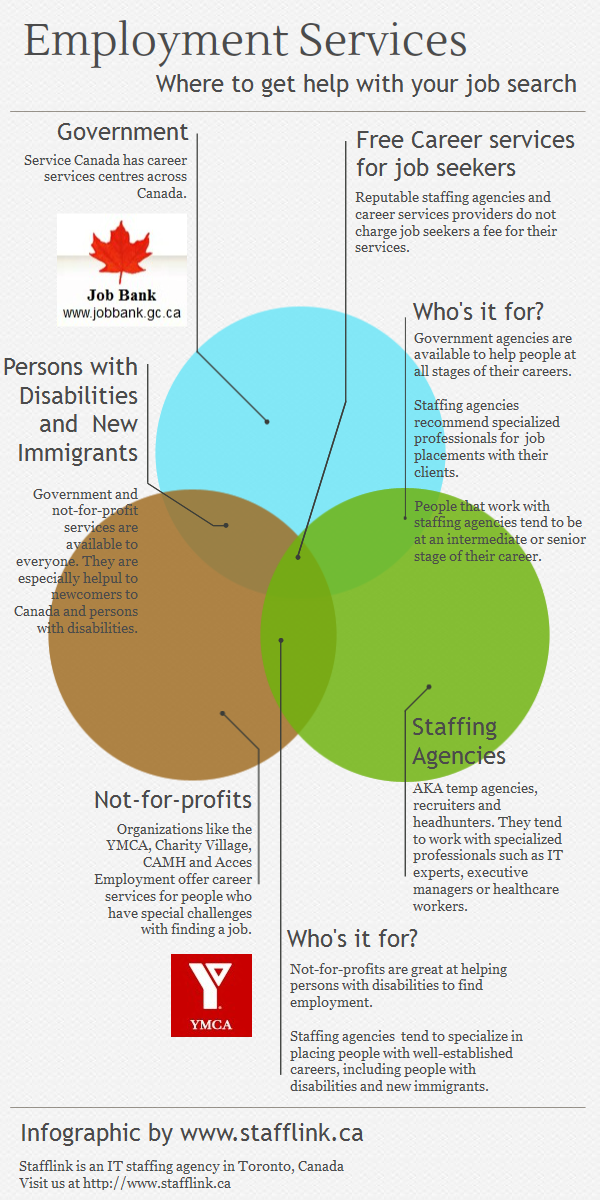How to improve your job search skills in Canada
Are you currently searching for a job in Canada? If so, you may be wondering how to enhance your job search skills to increase your chances of success. From crafting a compelling resume to networking effectively, there are various strategies that can help you stand out in the competitive job market. In this article, we will explore some practical tips and techniques to improve your job search skills, so you can land your dream job in Canada.
1. Understanding the Canadian Job Market
1.1 Researching in-demand industries and job positions
Before embarking on your job search in Canada, it is essential to conduct thorough research on the country’s job market. Start by identifying the in-demand industries and job positions to maximize your chances of finding employment. This research will give you valuable insights into where the opportunities lie and which sectors are experiencing growth.
You can begin your research by utilizing various resources such as government websites, industry reports, and labor market information. Pay close attention to industries that are currently flourishing, such as technology, healthcare, and renewable energy. These sectors often have a high demand for skilled workers, which can increase your chances of finding employment.
1.2 Familiarizing with the Canadian workplace culture
Familiarizing yourself with the Canadian workplace culture is crucial when looking for a job in Canada. Understanding the work environment, communication style, and professional etiquette will help you navigate the Canadian job market more effectively.
Canada is known for its diverse and inclusive work culture. Employers value professionalism, teamwork, and strong communication skills. It is important to demonstrate your ability to adapt and work well with others in a multicultural environment.
To gain a better understanding of the Canadian workplace culture, consider networking with professionals already working in Canada, attending career-related events, or participating in informational interviews. These experiences will provide valuable insights and allow you to make a smooth transition into the Canadian job market.
1.3 Exploring regional job markets and opportunities
While the Canadian job market as a whole offers numerous opportunities, it is important to explore regional job markets as well. Each province or territory may have specific industries or job sectors that are booming, offering a higher demand for skilled workers.
To effectively explore regional job markets, research the economic trends and growth patterns of different provinces or territories. Identify the industries that thrive in specific regions and align your job search accordingly. This targeted approach will maximize your chances of finding employment in a specific location.
Additionally, some provinces or territories may have specific programs or initiatives that cater to international job seekers. Research these opportunities, as they may provide additional support or resources throughout your job search.
2. Developing a Targeted Resume and Cover Letter
2.1 Tailoring your resume to Canadian standards
One of the most important components of a successful job search in Canada is having a targeted resume. Canadian employers often receive numerous resumes for each job posting, so it is crucial to stand out from the crowd.
Tailor your resume to Canadian standards by following a few key guidelines. Ensure that your resume is concise, well-organized, and easy to read. Highlight your relevant skills, qualifications, and work experience that align with the job requirements. Emphasize your accomplishments and quantify them whenever possible to showcase your value.
It is also important to format your resume according to Canadian standards. Use a professional font, include relevant headings and subheadings, and provide clear contact information. It is recommended to limit your resume to two pages unless you have extensive relevant experience.
2.2 Highlighting relevant skills and qualifications
When crafting your resume, be sure to highlight your relevant skills and qualifications to catch the attention of potential employers. Pay attention to the specific skills mentioned in the job postings you are interested in and ensure that those skills are emphasized in your resume.
In addition to technical skills, Canadian employers also place a strong emphasis on soft skills. These include communication skills, teamwork, adaptability, and problem-solving abilities. Make sure to illustrate these skills by providing concrete examples of how you have utilized them in previous roles or experiences.
Remember to tailor your skills and qualifications to each job application. Customize your resume based on the specific job requirements, and highlight the skills that make you the ideal candidate for the position.
2.3 Utilizing action verbs and measurable achievements
To make your resume more impactful and engaging, utilize action verbs and measurable achievements. Action verbs help to convey a sense of initiative and accomplishment, while measurable achievements provide tangible evidence of your capabilities.
Choose action verbs that are relevant to the job you are applying for, such as “implemented,” “managed,” or “resolved.” These verbs demonstrate your ability to take action and contribute to the success of an organization.
Additionally, including measurable achievements in your resume helps employers understand the impact you have made in previous roles. For example, instead of stating that you “improved sales,” provide specific numbers or percentages, such as “increased sales by 20% within six months.”
By utilizing action verbs and measurable achievements, you can make your resume more compelling and demonstrate your ability to deliver results.
2.4 Creating a compelling cover letter
A well-crafted cover letter can make a significant difference in your job search. It allows you to showcase your personality, enthusiasm, and suitability for the position in a more personalized way.
When writing your cover letter, begin by addressing it to the specific individual or department mentioned in the job posting. Introduce yourself and mention the position you are applying for. Take the opportunity to explain why you are interested in the role and how your skills and qualifications align with the job requirements.
Highlight specific experiences or accomplishments that illustrate your suitability for the position. Show the employer that you have done your homework and understand their organization and industry.
Keep your cover letter concise and focused. Aim to communicate your enthusiasm, passion, and fit for the role in a clear and compelling manner.

3. Enhancing Your Online Presence
3.1 Optimizing your LinkedIn profile
In today’s digital age, having a strong online presence is essential for a successful job search. LinkedIn, a professional networking platform, is particularly important in Canada’s job market.
Optimize your LinkedIn profile by ensuring that it is complete, up-to-date, and professional. Use a high-quality profile picture and craft a compelling headline that accurately represents your professional brand. Include a concise summary that highlights your skills, experience, and career aspirations.
Utilize LinkedIn’s features such as endorsements and recommendations to further enhance your profile’s credibility. Connect with professionals in your desired industry, join relevant LinkedIn groups, and actively engage in discussions to expand your network and visibility.
3.2 Building a professional online network
Building a professional online network is crucial for improving your job search skills in Canada. In addition to LinkedIn, consider joining other professional networking platforms or online communities.
Start by connecting with professionals in your industry or desired field. Attend virtual networking events and webinars to meet new people and expand your network. Engage in meaningful conversations, share insights or articles, and contribute to the community.
Be proactive in building and maintaining relationships with your online connections. Networking is a two-way street, so offer your assistance or expertise whenever possible. Building a strong network can lead to potential job opportunities, referrals, and valuable insights into the Canadian job market.
3.3 Showcasing your portfolio or work samples
If you have a portfolio or work samples that are relevant to your desired field, consider showcasing them online. This can be done through a personal website, a LinkedIn profile with attachments, or a portfolio-specific platform.
By providing tangible evidence of your skills and capabilities, you can differentiate yourself from other job seekers. Employers appreciate seeing your previous work and evaluating your suitability for the role.
Ensure that your portfolio or work samples are organized, visually appealing, and easy to navigate. Include a brief description or explanation of each sample to provide context. Be selective and only include your best and most relevant work.
3.4 Cleaning up your social media presence
While enhancing your online presence is important, it is equally crucial to clean up your social media presence. Potential employers often search for candidates online, and your social media profiles can make or break your job search.
Review your social media profiles and remove any posts, photos, or content that may be deemed unprofessional or inappropriate. Ensure that your privacy settings are set to a level that you are comfortable with.
Use this opportunity to present a positive and professional image to potential employers. Share content that reflects your interests, passions, and professional brand. By maintaining a clean and professional social media presence, you can improve your chances of securing interviews and job offers.
4. Networking and Building Connections
4.1 Attending professional events and industry conferences
Attending professional events and industry conferences is an excellent way to network and build connections in Canada. These events provide opportunities to meet professionals in your desired field, learn about industry trends, and gain valuable insights into the job market.
Research upcoming events and conferences in your area of interest and make an effort to attend. Prepare by practicing your elevator pitch and bringing business cards or other relevant materials. Engage in conversations, ask questions, and demonstrate your passion and interest in the industry.
Take advantage of the networking breaks and social events to connect with professionals. Be genuine, curious, and proactive in establishing meaningful connections. Follow up with the people you meet after the event to maintain the relationship and explore potential opportunities.
4.2 Joining relevant professional associations
Joining relevant professional associations in Canada can provide unique networking opportunities and access to industry-specific resources. These associations often organize events, workshops, and seminars that can enhance your job search skills and expand your professional network.
Research the professional associations in your desired field and consider becoming a member. Attend their events, participate in committees or volunteer opportunities, and take advantage of any mentorship or career development programs they offer.
Membership in professional associations demonstrates your commitment to your industry and can enhance your credibility as a job seeker. It also provides access to hidden job opportunities and allows you to connect with professionals who may be in a position to refer you to potential employers.
4.3 Utilizing online networking platforms
In addition to attending in-person events, utilizing online networking platforms can significantly enhance your job search skills in Canada. Platforms such as LinkedIn, professional forums, and industry-specific groups offer opportunities to connect with professionals from around the country.
Join relevant LinkedIn groups and engage in discussions. Contribute valuable insights, ask thoughtful questions, and build relationships with other group members. Actively participate in industry-specific forums and offer assistance to fellow professionals whenever possible.
Utilize online networking platforms to reach out to professionals directly for informational interviews or to establish mentoring relationships. Be respectful of their time and clearly communicate why you are reaching out and how you believe they can assist you in your job search.
4.4 Reaching out to Canadian professionals or alumni
Reaching out to Canadian professionals or alumni can be a valuable strategy to enhance your job search skills. Find professionals who are currently working in your desired field in Canada or who have successfully made the transition from international to Canadian employment.
Start by leveraging your existing network or connecting with professionals through LinkedIn. Be respectful and authentic when reaching out, expressing your interest in their experience or seeking advice on navigating the Canadian job market.
Prepare thoughtful questions and be genuinely interested in their insights. Learn from their experiences, ask for strategies or tips, and explore potential opportunities for collaboration or mentorship.
By building connections with Canadian professionals or alumni, you gain valuable insights into the job market, increase your chances of finding employment, and potentially find mentors who can guide you throughout your career journey in Canada.

5. Refining Interview Skills
5.1 Researching the company and position
Preparing for interviews is crucial to improve your job search skills in Canada. Start by thoroughly researching the company and position you are applying for. Understand the organization’s mission, values, and culture. Familiarize yourself with their recent achievements, projects, or initiatives.
Review the job description and identify the key skills and qualifications required. Research the industry and the current trends that may be relevant to the role. Prepare intelligent questions to ask the interviewer that demonstrate your enthusiasm and understanding of the position.
This research will not only help you during the interview but also allow you to make an informed decision about your fit within the organization. It will also provide you with talking points to showcase your knowledge and interest in the company.
5.2 Preparing and practicing common interview questions
Preparing and practicing common interview questions is a vital step in improving your job search skills. Although you cannot predict every question you will be asked, there are common interview questions that you can prepare for.
Review common interview questions such as “Tell me about yourself,” “Why are you interested in this position?” and “What are your strengths and weaknesses?” Prepare thoughtful and concise answers that highlight your skills, experience, and suitability for the role.
Practice your answers with a friend or in front of a mirror to improve your delivery and confidence. Ensure that your responses are concise, focused, and tailored to the specific job requirements.
By preparing and practicing common interview questions, you will feel more confident and be better equipped to articulate your qualifications during the interview.
5.3 Developing confident body language and communication
During an interview, your body language and communication skills play a crucial role in creating a positive impression. Pay attention to your posture, maintain eye contact, and exude confidence through your gestures and facial expressions.
Practice active listening by attentively engaging with the interviewer and demonstrating your interest in the conversation. Avoid interrupting, and ensure that you provide thoughtful and concise responses.
Speak clearly and confidently, ensuring that your tone of voice is appropriately modulated. Use examples or stories from your previous experiences to illustrate your skills or accomplishments.
Developing confident body language and communication skills will leave a lasting positive impression on the interviewer and increase your chances of securing the job.
5.4 Seeking feedback and improving interview techniques
Seeking feedback is an essential component of refining your interview skills. Even if you do not get the job, it is valuable to ask for feedback on your interview performance. This feedback can help you identify areas for improvement and adjust your interview techniques for future opportunities.
Reach out to the interviewer or the human resources department to express your gratitude for the opportunity and ask for feedback. Be open to constructive criticism and use it as a learning opportunity.
Take note of the areas highlighted for improvement and develop a plan to address them. Practice mock interviews with a trusted friend or mentor, incorporating the feedback you received.
Continuously seeking feedback and improving your interview techniques will enhance your job search skills over time, making you a more confident and competent interviewee.
6. Utilizing Job Search Platforms and Resources
6.1 Exploring popular Canadian job boards and websites
Canadian job boards and websites offer a wealth of job opportunities and resources. Explore popular Canadian job boards such as Indeed, Workopolis, and LinkedIn Jobs. These platforms aggregate job postings from various industries and sectors across the country.
When utilizing job boards, take advantage of advanced search filters to narrow down your options based on location, industry, or specific job requirements. Set up job alerts to receive notifications for new postings that match your criteria.
Additionally, visit company websites directly, as they often advertise job opportunities on their own careers pages. This will allow you to apply directly to the company and potentially stand out from other candidates.
6.2 Registering on government-sponsored employment platforms
The Canadian government offers various sponsored employment platforms that cater specifically to job seekers and employers. Registering on these platforms can increase your exposure to potential employers and provide access to additional resources and support.
Platforms such as Job Bank and the Provincial Nominee Program (PNP) websites offer job listings, labor market information, and information on government initiatives or programs that support international job seekers.
Registering on these platforms allows employers to find your profile, search for relevant skills and qualifications, and potentially connect with you for job opportunities. Be sure to keep your profile updated and complete, showcasing your skills, education, and experience.
6.3 Utilizing job search apps and aggregators
In addition to traditional job boards and government-sponsored platforms, consider utilizing job search apps and aggregators. These apps allow you to access job opportunities on the go and provide features such as saved searches, notifications, and user-friendly interfaces.
Popular job search apps and aggregators in Canada include Indeed, LinkedIn, and Glassdoor. Download these apps to your mobile device and set up alerts for job postings in your desired industry or location.
Utilize the features of these apps to save job postings, apply directly from your device, and keep track of your job search activities. Leverage the convenience of job search apps and aggregators to stay organized and remain proactive in your job search.
6.4 Leveraging resources provided by career centers and employment agencies
Career centers and employment agencies in Canada offer valuable resources to job seekers. These organizations provide services such as resume critiques, interview preparation, and job search strategies.
Search for career centers or employment agencies in your local area and explore the resources they offer. Take advantage of workshops or webinars on topics such as resume writing, interviewing skills, and job search techniques.
Additionally, career centers and employment agencies often have job postings specific to their client base. Register with these organizations to access their database of job opportunities and potentially benefit from their connections with employers.
By leveraging the resources provided by career centers and employment agencies, you can enhance your job search skills, gain valuable insights, and potentially access hidden job opportunities.

7. Enhancing Transferable Skills
7.1 Identifying transferable skills from previous experiences
Identifying and highlighting transferable skills from your previous experiences is essential when applying for jobs in Canada. Transferable skills are those that can be applied in various roles or industries and are highly valued by employers.
Review your previous work experiences, volunteer work, or educational activities, and identify the transferable skills you possess. These may include skills such as communication, problem-solving, leadership, or organization.
When writing your resume or cover letter, emphasize these transferable skills and demonstrate how they are applicable to the job you are applying for. Provide specific examples that showcase how you have utilized these skills to achieve success.
By showcasing your transferable skills, you are demonstrating your versatility and adaptability, making you an attractive candidate to Canadian employers.
7.2 Seeking opportunities for further education or certifications
In some cases, seeking opportunities for further education or certifications can enhance your job search skills. Canada has numerous educational institutions and professional development programs that offer courses, certifications, or degrees in various fields.
Research the educational opportunities available in your desired field and consider pursuing additional education or certifications if it aligns with your career goals. This can signal your commitment to continuous learning and professional development, making you a stronger candidate for employment in Canada.
Additionally, some professions in Canada have regulatory bodies or licensing requirements. Research whether your desired occupation has any specific educational or licensing requirements and ensure that you meet them.
Further education or certifications can enhance your knowledge, skills, and credentials, making you a more competitive candidate in the Canadian job market.
7.3 Volunteering to gain Canadian work experience
Volunteering in Canada is an excellent way to gain Canadian work experience, expand your professional network, and demonstrate your commitment to your field.
Research local volunteer opportunities in your desired industry or field of interest. Look for organizations or initiatives that align with your skills and career goals. Volunteering can provide valuable hands-on experience, allow you to build relationships with professionals, and potentially lead to paid employment opportunities.
When applying for volunteer positions, treat the process with the same level of professionalism as you would for paid employment. Tailor your resume and cover letter to showcase your skills and enthusiasm for the organization’s mission. Highlight any transferable skills or relevant experiences that make you a strong candidate.
Volunteering not only helps you gain relevant Canadian work experience but also allows you to contribute to your community and make a positive impact.
7.4 Participating in skill-building workshops
Participating in skill-building workshops can significantly enhance your job search skills. Many organizations, career centers, or professional associations in Canada offer workshops or training programs that focus on developing specific skills.
Research workshops or training opportunities related to your desired field and consider participating in them. These workshops can cover a wide range of topics such as technical skills, leadership development, communication skills, or industry-specific knowledge.
Participating in skill-building workshops allows you to enhance your knowledge, expand your skill set, and demonstrate your commitment to professional growth. These experiences can also provide valuable networking opportunities and access to industry experts.
Continuous skill development through workshops and training demonstrates your adaptability, willingness to learn, and commitment to excellence, making you a more desirable candidate for employers in Canada.
8. Customizing Job Search Strategies
8.1 Targeting specific companies or industries
Customizing your job search strategy involves targeting specific companies or industries that align with your skills, interests, and career goals. Instead of applying to any available job opening, take a more strategic approach by focusing your efforts on the organizations or industries you are most interested in.
Research the companies that are leaders in your desired industry and identify the ones that resonate with you. Study their mission, values, company culture, and recent initiatives. Understand their pain points or challenges and think about how your skills and experience can contribute to solving those issues.
Customize your application materials, including your resume and cover letter. Tailor them to each company’s specific needs, highlighting the skills and qualifications they value most. Demonstrate your passion, knowledge, and understanding of the company in your application.
By targeting specific companies or industries, you increase your chances of finding the right fit and stand out as a candidate who is genuinely interested in contributing to the organization’s success.
8.2 Networking with professionals in your desired field
Networking with professionals in your desired field is a powerful strategy for improving your job search skills in Canada. Building relationships with individuals who are already working in your target industry can provide valuable insights, mentorship, and potential job leads.
Leverage your existing network and reach out to professionals through LinkedIn or professional events. Be respectful of their time and clearly articulate why you are interested in connecting with them.
Engage in meaningful conversations, ask thoughtful questions, and listen actively to their experiences and advice. Be open to offering assistance or sharing your knowledge whenever possible, as networking is a mutually beneficial process.
By creating genuine connections with professionals in your desired field, you increase your visibility and access to potential job opportunities. These relationships can also provide valuable support, guidance, and even referrals during your job search.
8.3 Utilizing informational interviews
Informational interviews are an effective way to gain insights, build connections, and expand your network in Canada. An informational interview involves setting up a meeting with a professional in your desired field to learn more about their career, industry, or company.
Reach out to professionals through LinkedIn or other networking channels and request a brief meeting to discuss their career path and industry insights. Come prepared with thoughtful questions and actively listen to their responses.
During the informational interview, focus on learning from their experiences, gathering information about the industry or company, and seeking advice on how to navigate the job market effectively. Avoid directly asking for job leads, but express your interest in potential opportunities that align with your skills and interests.
Following the informational interview, express your gratitude and maintain the relationship by periodically checking in and providing updates on your job search progress. This personalized and proactive approach can open doors to hidden job opportunities and provide valuable guidance throughout your job search.
8.4 Exploring alternative job search methods
In addition to traditional job search methods, exploring alternative approaches can often yield unique job opportunities. Consider unconventional methods such as attending job fairs, participating in hackathons or innovation challenges, or reaching out to startups or small businesses.
Job fairs provide opportunities to meet multiple employers in a single location and learn about their open positions. Research upcoming job fairs in your area and prepare by bringing copies of your resume and a list of targeted employers.
Hackathons or innovation challenges often attract employers seeking candidates with specific technical skills. Participating in these events showcases your abilities, exposes you to potential job opportunities, and allows you to network with professionals in the industry.
Startup companies or small businesses may offer less formalized job opportunities. Research emerging startups or small businesses in your desired field and explore potential job openings or internship opportunities. These organizations can provide valuable learning experiences, rapid skill development, and the potential for advancement.
By exploring alternative job search methods, you expand your reach and increase your chances of finding unique employment opportunities that may not be widely advertised.

9. Managing Job Search Stress and Emotions
9.1 Practicing self-care and maintaining a healthy lifestyle
Managing job search stress and emotions requires practicing self-care and maintaining a healthy lifestyle. The job search process can be mentally and emotionally taxing, so it is important to prioritize your well-being.
Take care of your physical health by maintaining a balanced diet, getting regular exercise, and getting enough sleep. Engage in activities that help you relax and destress, such as practicing mindfulness or meditation, going for walks in nature, or engaging in hobbies that bring you joy.
Create a routine that incorporates self-care activities and allows you to recharge. Set realistic goals and timelines for your job search to manage expectations and avoid burnout.
9.2 Engaging in positive self-talk and maintaining motivation
Engaging in positive self-talk and maintaining motivation is crucial throughout your job search journey. It is easy to become discouraged or doubt yourself when faced with rejection or prolonged job search periods.
Remind yourself of your unique strengths, skills, and accomplishments. Celebrate small victories and acknowledge the progress you are making, even if it may not be immediately reflected in job offers.
Maintain a positive mindset and focus on the opportunities that lie ahead. Surround yourself with supportive friends, family, or mentors who can provide encouragement and lift your spirits during challenging times.
Set achievable daily or weekly goals that keep you motivated and focused. Celebrate each milestone you reach, whether it is sending out a certain number of job applications or securing an interview.
9.3 Seeking support from friends, family, or support groups
Seeking support from friends, family, or support groups is essential for managing job search stress and emotions. Lean on your support system during challenging times and share your feelings, concerns, and successes with them.
Consider joining job search support groups or online communities where you can connect with other individuals who are going through a similar experience. Share your insights, learn from their experiences, and offer encouragement to fellow job seekers.
Engage in conversations with individuals who have successfully navigated the Canadian job market. Seek advice, gain inspiration, and learn from their strategies or challenges.
Remember that you are not alone in your job search, and seeking support can provide valuable perspective, motivation, and emotional support.
9.4 Taking breaks and avoiding burnout
Taking breaks and avoiding burnout is crucial for maintaining productivity and overall well-being during your job search. The job search process can be lengthy, and it is important to pace yourself to prevent exhaustion or loss of motivation.
Schedule regular breaks throughout your day or week to engage in activities that you enjoy. This can be as simple as going for a walk, practicing a hobby, or spending time with loved ones.
Set boundaries and limit the time you spend on job search activities. Taking time to recharge and engage in activities outside of your job search will help you maintain balance and perspective.
Recognize the signs of burnout, such as feeling exhausted, experiencing decreased motivation, or becoming irritable. If you notice these signs, take a step back, reassess your strategy, and seek out the necessary support or resources.
By taking breaks and avoiding burnout, you are ensuring that you maintain your physical and mental well-being, allowing you to present your best self during interviews and throughout the job search process.
10. Continuous Learning and Adaptability
10.1 Staying updated on industry trends and market demands
Continuous learning is a valuable skill in the ever-evolving job market. Staying updated on industry trends and market demands is essential to remain competitive and adapt to changing job requirements.
Subscribe to industry newsletters, read industry-specific publications, and follow influential thought leaders or organizations on social media. Stay abreast of emerging technologies, evolving best practices, and new industry developments.
Identify relevant professional development opportunities, such as conferences, webinars, or workshops, that can keep you informed and expand your knowledge. Continuously seeking new learning opportunities and staying updated on industry trends showcases your commitment to professional growth and adaptability.
10.2 Developing new skills and staying relevant
Developing new skills is essential in the competitive job market. Technology and industry trends evolve rapidly, and employers value candidates who possess up-to-date skills.
Identify the skills that are in demand in your desired field and seek opportunities to acquire or enhance them. Take advantage of online courses, certifications, or workshops that can facilitate your skill development.
Consider volunteering for projects or initiatives that allow you to gain hands-on experience in a new skill or area of expertise. Take on assignments at work that allow you to expand your skill set and take on new responsibilities.
Demonstrating your ability to continuously learn and develop new skills signals your adaptability and capacity for growth, making you a desirable candidate for Canadian employers.
10.3 Embracing technology and digital advancements
Embracing technology and digital advancements is crucial in today’s job market. Canada, like many other countries, is experiencing a digital transformation across various industries.
Stay updated on digital trends, tools, and platforms that are relevant to your desired field. Develop proficiency in using technology and digital tools that are commonly used in your industry.
Highlight your digital literacy on your resume and during interviews. Demonstrate your ability to adapt to new software, tools, or platforms and your willingness to embrace technology-driven processes.
By embracing technology and digital advancements, you position yourself as a candidate who is open to innovation and capable of navigating the digital landscape of the Canadian job market.
10.4 Being open to new opportunities and career paths
Being open to new opportunities and career paths is essential in improving your job search skills in Canada. The job market is dynamic, and the perfect job may not always appear in the way you expect.
Be open-minded and consider opportunities that might not align perfectly with your initial career goals. Explore roles or industries that could provide valuable experience, help you build new skills, or lead to future opportunities.
Seek advice from professionals who have successfully transitioned between industries or career paths. Learn from their experiences and be open to their insights and suggestions.
Redefine your definition of success and remain open to new pathways that may unfold during your job search. By embracing new opportunities and career paths, you can expand your skills, gain diverse experience, and create new possibilities for your future career in Canada.







